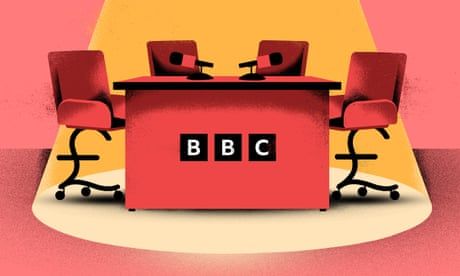
This may be a rational move – but it should not be used as an argument to hack away at the corporation until it has little left to offer
What is Gary Lineker worth to licence-fee payers? One obvious way to think about that question is to measure what else you could get with his £1.35m pay packet, a large chunk of which has just been offloaded by the BBC: 8,000 television licences, 40 NHS nurses, 26 BBC employees on the corporation’s median salary, eight Keir Starmers, seven Chris Suttons, six Alex Scotts, five Mark Chapmans, or a house somewhere outside Elstree. And that’s mad, obviously. He says the names of the football teams and asks Alan Shearer whether something was a red card or not – and it can’t take more than a couple of days a week. There is absolutely no way to justify it.
The other way of thinking about it is a lot less concrete, and a lot harder to turn into an overheated demand to scrap the BBC. You could begin with the observation that, as well as being massive and unjustifiable, Lineker’s pay deal cost less than four hundredths of a percent of licence fee income this year. You might note how lucky the likes of Amanda Holden and Stephen Mulhern, not obviously more talented, are that their ITV deals are treated as commercially sensitive, and therefore secret. And you might also say that in the end, since the BBC has a comfortably larger audience share than any of its commercial rivals, it isn’t that surprising if it has to pay somewhere in the same universe as the going rate.
Archie Bland is the editor of the Guardian’s First Edition newsletter
Continue reading...